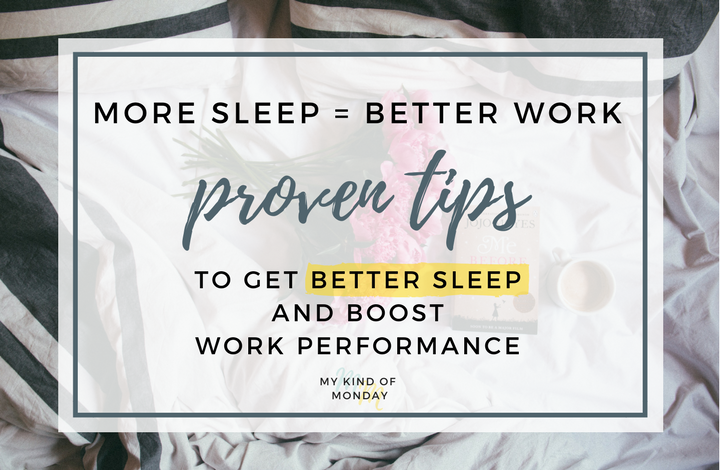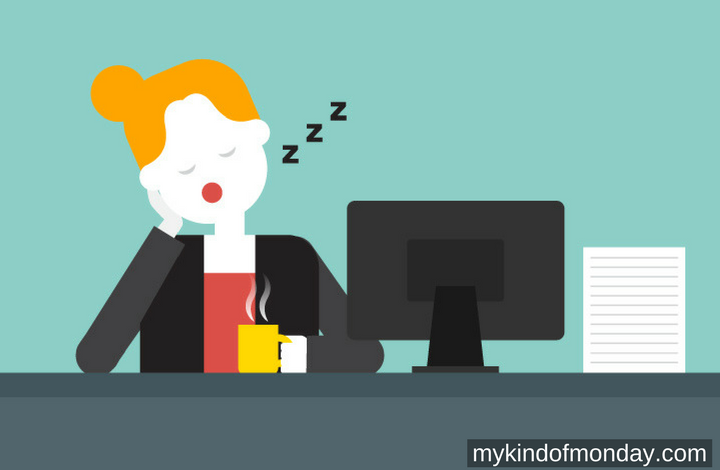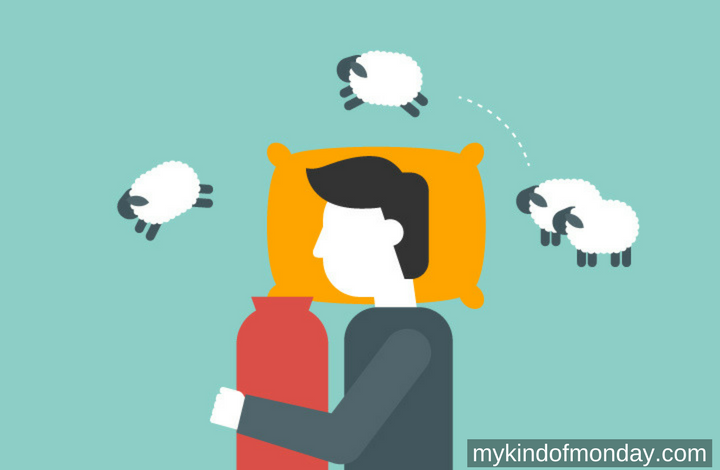
When you think of ways to improve work performance, you may think of things such as using productivity tools, getting a mentor, doing research, or starting work earlier.
What you may not consider is trying to get a better night’s rest.
However, insufficient sleep is negatively affecting many of us, with one survey finding that 79% of Americans get less than the recommended 7 hours of sleep a night.
And this lack of sleep? It can adversely affect your wellbeing, health, and even productivity.
So, what can you do about it?
Well, luckily there are a few (simple!) measures you can take to help you get enough shuteye. We take a look at these and exactly why it’s so important to focus on positive sleep habits.
What Happens When You Don’t Get Enough Sleep?
Whether you’re stressed out, eating or drinking late, failing to wind down before bed, or simply taking sleep for granted, there are many reasons why you may not be getting enough sleep.
But what happens to your body and brain when you miss out on this precious sleep?
Well, first, let’s take a look at some of the things that happen when you sleep; your breathing and heart rate slow, your blood pressure and body temperature drop, your muscles relax, your brain cements new memories and clears away toxic by-products, energy is restored, and tissue growth and repair occurs.
If your body doesn’t get a chance to do the above, you’ll soon start to notice the consequences. You will most likely recognize some of the signs that appear after a bad night’s rest, including moodiness, irritation, difficulty concentrating, and even dull reflexes.

The longer you go without sleep, the worse it gets.
In fact, studies have shown that after 17 to 19 hours of being awake, your body begins to function much in the same way as if your blood alcohol level was at 0.05%, rising to 0.1% once you reach 20 to 25 hours. For comparison, the legal driving limit in the U.S. is 0.08%.
Sleep deprivation affects your brain’s ability to adapt to input. You are unable to process the things you’ve learned throughout the day, which will make it more difficult for you to remember it. Health risks also increase, with symptoms of depression, high blood pressure, migraines, and seizures worsening. Furthermore, the possibility of infection and illness increase, as your immunity is compromised.
There are also longer-term effects to consider, with chronic sleep disturbances linked to Alzheimer’s, schizophrenia, and autism.
Professor of neuroscience and psychology at UC Berkeley, and author of the bestseller “Why We Sleep,” Matthew Walker, explains what happens when you don’t get enough sleep rather well in the video below:
How does all of this affect work performance?
A lack of sleep can impact your ability to:
- Concentrate
- Learn new things
- Solve problems
- Be creative
- Make decisions
- Perform efficiently
Sleep deprivation is also linked to lower productivity, which is not just bad news for you and your employer, but for the economy as a whole. The U.S. alone loses an equivalent of 1.2 million working days a year because of it. In fact, the problem is so bad, that the economic cost to the U.S. is estimated to be up to $411 billion a year. That’s 2.28% of its GDP!
Simple Changes You Can Make To Get More Sleep

So, now you understand the importance of getting enough sleep every night let’s get into how you can get more of it.
Power down
Electronic devices, including your T.V. and smartphone, emit blue light, which is linked to the suppression of melatonin. So, not only is your iPhone providing you with plenty of distractions to keep you up late, but the light it emits is also stopping you from falling asleep.
To combat this, try to avoid looking at screens an hour before you hit the sack. If you can’t go without using your phone, try setting it to night shift mode, which will help minimize the effects.
Of course, blue light isn’t just found in your phone, so if you need to use your computer before bed, you can use a blue light screen protector, or even wear blue light blocking glasses to watch TV.
Avoid caffeine and alcohol
Most of us know to stay away from coffee before bed, but one study found that even consuming caffeine up to 6 hours beforehand could have disruptive effects on sleep. As for alcohol, while it may help you fall asleep quicker and increase deep sleep during the first part of the night, it is also likely to cause more awakenings and won’t leave you feeling as well rested the following morning.
Sleep on your side
The position you sleep in can make a difference to the quality of sleep you get. If you spend most of the night lying on your back with your head straight, then you are more likely to be a poor sleeper, experiencing more awakenings and spending more time awake. This is likely because sleeping on your back can cause snoring, aggravate sleep apnea, and also lead to a sore lower back.
Instead of lying on your back, try sleeping on your side. Curling up in the fetal position allows your spine to rest in its natural alignment, so that you won’t end up with back and neck pain. What’s more, it may even help your brain clear waste and also help ward off neurological diseases such as Parkinson’s and Alzheimer’s.
De-stress
Stress can have a negative impact on your quality of sleep, which should come as no surprise as it can make it very difficult for you to relax enough to fall asleep. Find a way to de-stress, such as doing mindfulness exercises, drinking chamomile tea, taking a bath, or even counting sheep. For longer and better sleep, try meditation, which has been shown to improve symptoms of insomnia.
If you’re having trouble getting to sleep because you can’t stop thinking about a particular work problem or issues you may be having in your personal life, then try doing a bit of problem-solving. A study focusing on pre-sleep cognitive arousal found that writing out your problems and suggesting possible solutions to these problems can help you feel more relaxed.
Develop a sleep routine

The most effective way of improving your sleep? Well, according to Matthew Walker, it’s “Going to bed and waking up at the same time of day no matter what.”
And research backs this up. A study published in the journal Scientific Reports found that irregular sleep/wake patterns are linked to delayed circadian timing, which may end up reinforcing both delayed and irregular sleep patterns.
Try to come up with a relaxing pre-bed routine that lasts about an hour before going to bed. The aim should be to follow a predictable pattern that will let your mind and body know that it’s nearly time for bed. It should include low-key activities that help you feel good and relax.
To help keep you on schedule, try setting the alarm to remind you to start your sleep routine. Turn off the TV and set down your smartphone, and dim the lights so you can begin to wind down and get ready for sleep.
It’s not just having a consistent bedtime routine that can make a difference. One study, published in The Journals of Gerontology: Series B, found that having a regular daily schedule is also associated with better sleep quality and fewer night awakenings.
So, if you want to enjoy better sleep, and thus better performance at work, make sure you stick to a regular sleep schedule.
Do you get enough sleep? If you have any tips you would like to share with our readers, share them in the comments below!
Leave a Reply